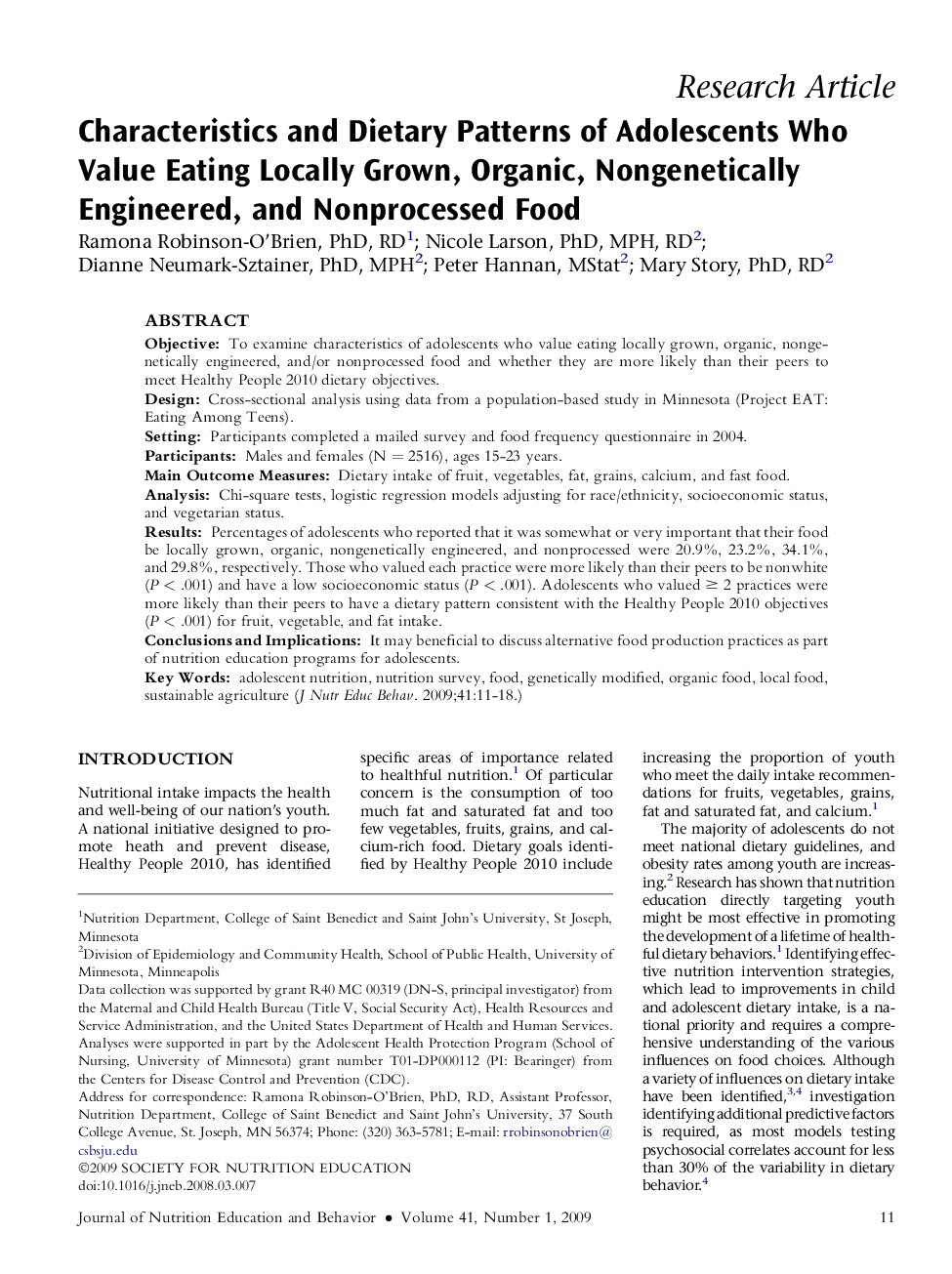| Article ID | Journal | Published Year | Pages | File Type |
|---|---|---|---|---|
| 362720 | Journal of Nutrition Education and Behavior | 2009 | 8 Pages |
ObjectiveTo examine characteristics of adolescents who value eating locally grown, organic, nongenetically engineered, and/or nonprocessed food and whether they are more likely than their peers to meet Healthy People 2010 dietary objectives.DesignCross-sectional analysis using data from a population-based study in Minnesota (Project EAT: Eating Among Teens).SettingParticipants completed a mailed survey and food frequency questionnaire in 2004.ParticipantsMales and females (N = 2516), ages 15-23 years.Main Outcome MeasuresDietary intake of fruit, vegetables, fat, grains, calcium, and fast food.AnalysisChi-square tests, logistic regression models adjusting for race/ethnicity, socioeconomic status, and vegetarian status.ResultsPercentages of adolescents who reported that it was somewhat or very important that their food be locally grown, organic, nongenetically engineered, and nonprocessed were 20.9%, 23.2%, 34.1%, and 29.8%, respectively. Those who valued each practice were more likely than their peers to be nonwhite (P < .001) and have a low socioeconomic status (P < .001). Adolescents who valued ≥ 2 practices were more likely than their peers to have a dietary pattern consistent with the Healthy People 2010 objectives (P < .001) for fruit, vegetable, and fat intake.Conclusions and ImplicationsIt may beneficial to discuss alternative food production practices as part of nutrition education programs for adolescents.
